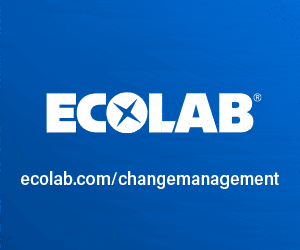As favourable market conditions are driving increased growth across the Middle East and North Africa (MENA) pharma market, CPhI MEA (Middle East and Africa) is due to takes place next month.
CPhI Middle East and Africa organised by UBM will occur at the ADNEC centre, Abu Dhabi, 3-5 September 2018.
Ageing and gentrifying populations, increased healthcare spending and a modernising supply chain are transforming prospects in the region.
Total pharma sales have reached $32 billion across MENA as a whole – the Middle East accounts for $20.3 bn and North Africa $10.7 bn. The increasingly gentrified populations in Sub-Saharan African countries and the development of sophisticated universal healthcare systems in the Middle East are providing robust growth opportunities.
In particular, the finished dosage formulation sector is expanding particularly quickly in the Middle East, with a number of plants being commissioned in the last few years. In the UAE, the government also fast-tracks approval of locally manufactured drugs, which is helping to establish a new manufacturing base in the country – with the added potential for exports to the Gulf Cooperation Council.
Cara Turner, Brand Director of CPhI Middle East & Africa, UBM, said: “Many companies are receiving a direct boost from government policy changes and are building new manufacturing facilities in the region, which is seeing the sector perform strongly. Domestic production accounts for approximately 45% of drug consumption in the Middle East, with generics in the GCC alone valued at $1.55 bn in 2016.”
Saudi Arabia remains the biggest pharma market in the region according to 2017 sales numbers at $7.5 bn, with Turkey ($6.9 bn), Egypt ($3.4 bn) and the UAE ($3.17 bn) following closely behind. However, overall the North Africa region is predicted to see the fastest growth rates in the next few years at 7.6% CAGR.
“The Middle East and Africa market is evolving at a rapid pace, and opportunities are plentiful for regional and international pharma companies. However, it can be a difficult region to navigate due to the lack of an overall governing body," Turner said.
She continued: "Internationals looking to access the market need an appreciation of differing rules, regulation and systems in operation. It’s one of the reasons we are launching CPhI MEA this year as we believe we can help accelerate domestic international growth. Increasingly, we are seeing a number of affluent and high growth pharma companies emerge, which presents ample opportunity to form international partnerships.”
In a region that relies heavily on imported ingredients and the maintenance of a reliable network of distributors, CPhI MEA is specifically tailored to facilitate new connections between regional and multinational businesses and optimize existing partnerships.
The event will attract key decision makers and budget holders from the region to meet with 4000+ attendees – 50% of which are from outside the MEA region – and 250 local, regional and international exhibitors. In fact, such has been the demand in the last few months that the organisers have had to add a further 348 m2 (7%) of floor space.
The exhibition will also feature colocated events, finished-dosage-formulation (FDF), ICSE, P-MEC and InnoPack providing a comprehensive overview of all steps of the supply chain in one location. Representatives from APIs, excipients, IT, analytical services, contract manufacturing, clinical trials, packaging, machinery and more will be present.
Jerome Carle, General Manager at Julphar, said: "The MEA plays a more and more important role in the global pharmaceutical market. This event will give exposure to regional players, stimulate discussion on key regional and international issues and create meaningful opportunities for collaboration."
"It will also provide a unique opportunity to gain insights into the latest trends and developments that are shaping the landscape of the industry. For companies that do not have a footprint in the MEA, this will also be a great opportunity to find strong partners to help them navigate in the region and build their strategies."




